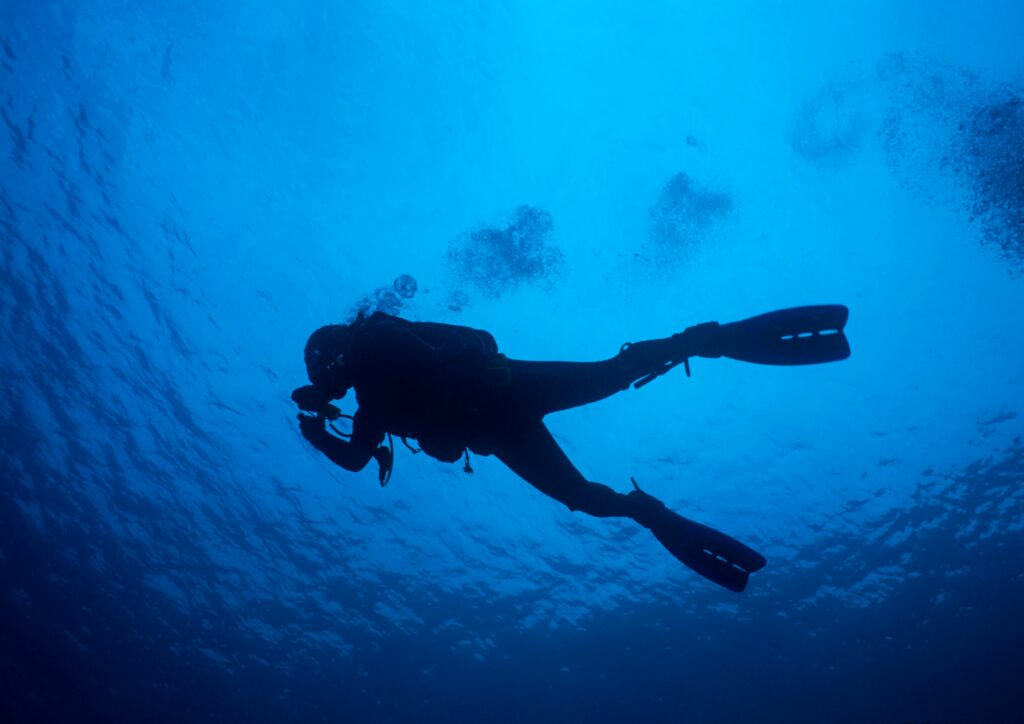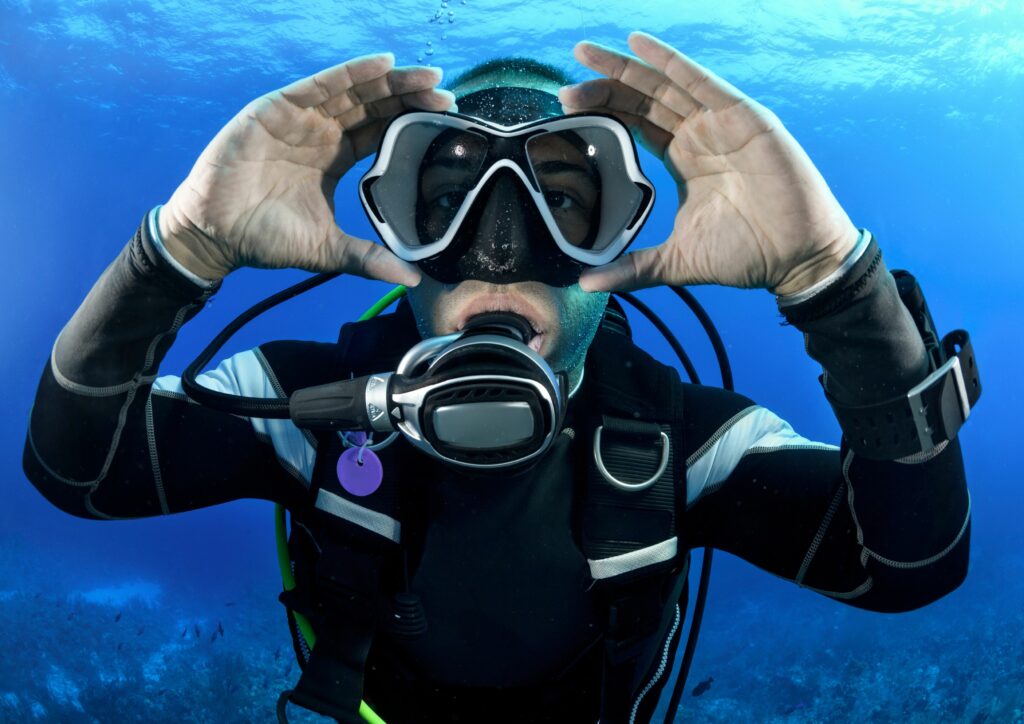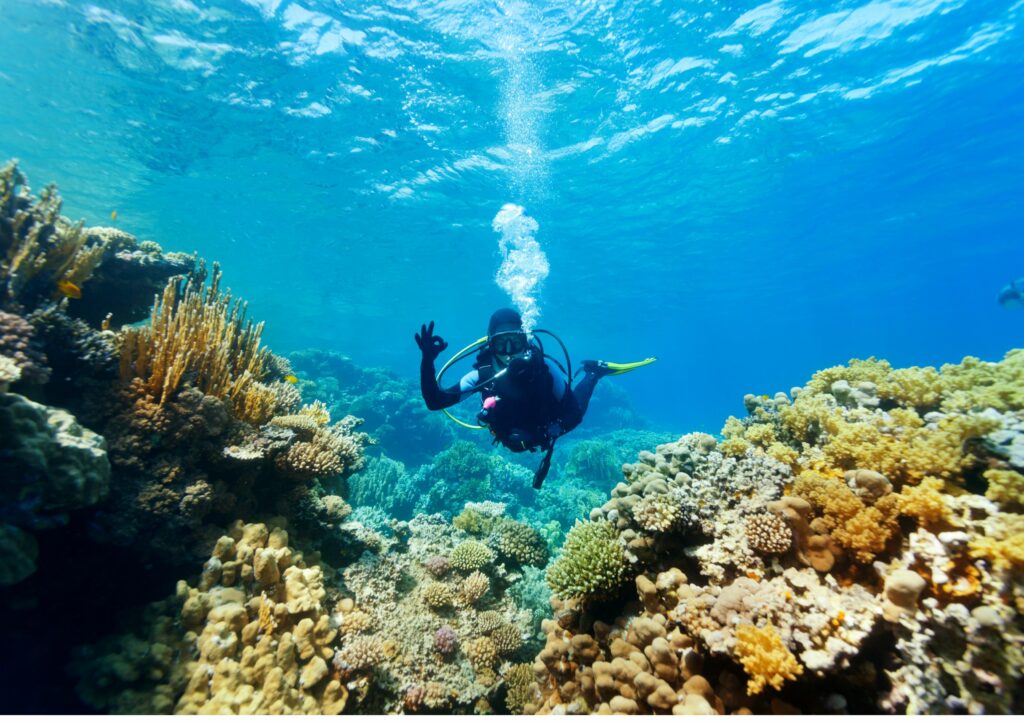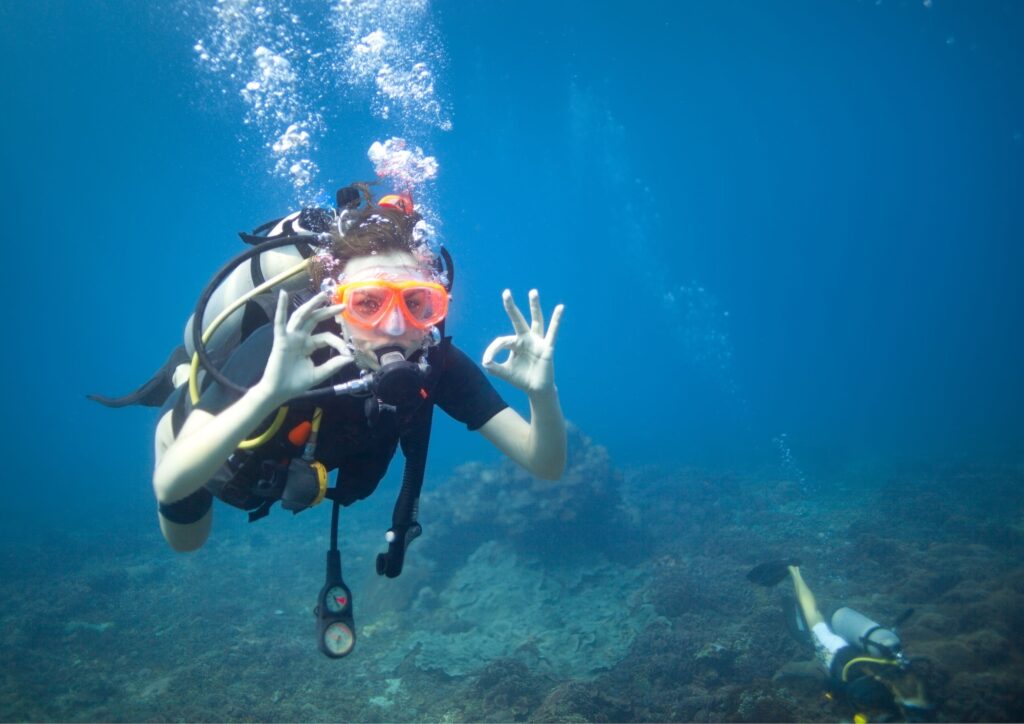This blog post dissects five basic scuba diving skills that every underwater adventurer needs to master. Scuba diving can be a thrilling experience. Whether it’s the allure of underwater sights, fascinating sea life, or just the thrill of diving into the alien, woefully unexplored underwater world, scuba diving has intrigued many. However, as enchanting as it may be, diving also requires cultivating essential skills to safely enjoy the experience.
1. Don’t Hold Your Breath

When we enter into the realm of water, this notion of inhale and exhale goes through a paradigm shift. The very transition of our bodies from being land to undersea explorers involves a crucial rule, especially in the context of scuba diving – One must never hold their breath. As we go deeper underwater, the pressure increases and this has a direct impact on the air in our lungs. The air expands and contracts with this pressure changes and holding your breath can risk lung overexpansion. A lung overexpansion is a dangerous scenario that can lead to serious injuries. The rhythm of your breath should be slow, calm, and controlled to ensure maximum safety.
2. Equalise Early and Often
If you’ve ever dived into the deep end of a pool, you’ve probably experienced the uncomfortable sensation of pressure in your ears. As we descend underwater, the pressure increases causing discomfort or pain, particularly in your ears and sinuses. The remedy to this is something you may not have considered before: equalising. It’s a simple adjustment but has far-reaching implications for your comfort and safety while scuba diving. Equalising is the act of adjusting the pressure within your body’s air spaces to match the external underwater pressure. The key is to equalise early and often, ensuring you’re not causing undue pressure and discomfort to your body. By doing so, you can enjoy a more comfortable and safe diving experience.
3. Clearing Your Mask

Imagine being enchanted by the vibrant underwater life when suddenly, your visibility blurs. Water has unexpectedly entered your mask, and it’s obstructing your view. Therefore, clearing your mask of water is an important skill every scuba diver needs to master in the basic scuba diving skills. Picture this, you’re under the water, you feel a trickling sensation entering your mask, what do you do? You exhale through your nose while slightly tilting your head back. The force of the exhaled air pushes the water out from the bottom of your mask. It’s quite straightforward: a bit of exhalation and slight head tilt can ensure a clear vision and comfortable dive and prevent any panic-inducing situations.
4. Clearing Your Regulator
The regulator is your umbilical cord underwater, providing you the air you breathe. However, water may accidentally intrude your regulator, which can disrupt the air flow. Clearing your regulator is a significant part of safe scuba diving in the basic scuba diving skills. Blowing the water out or using the purge button on the regulator, clears out the unwanted water. If the regulator is in your mouth, a strong puff of exhaled air should expel out any intruding water, providing you an uninterrupted air supply. Alternatively, a simple, rapid press of the purge button releases some air, which effectively clears the regulator.
5. Achieving Neutral Buoyancy

Swimming in water is more than just using your limbs. It’s about managing your buoyancy as one of the basic scuba diving skills. Neutral buoyancy is a state where you neither ascend nor descend in the water, but stay suspended at a constant depth. Achieving this state of balanced mobility requires you to manage your buoyancy control device and weight system correctly. \However, mastering the art and science of neutral buoyancy can give you optimal control and movement precision during your dive, while saving your energy and air supply. It transforms you from a mere swimmer to an undersea explorer who glides effortlessly through the water. It’s pure magic!
Diving Deeper into Basic Scuba Diving Skills
Exciting yet demanding, scuba diving is all about these essential skills: the continuous breath, the frequent equalising, the needful clearing of your mask and regulator, and the art of obtaining neutral buoyancy. Master these, and you can submerge deeper, stay longer and explore the less-traversed realms of our magnificent underwater world with safety and ease. Turn these skills into second nature, and nothing can stop you from embracing the adventures that the sea has to offer.

This post is so informative! I’m new to scuba diving, and it’s great to learn about the basic skills upfront. Neutral buoyancy is definitely something I need to work on – thanks for sharing these tips!
Hi Maya, thanks for your feedback! We’re glad you found the post informative and helpful, especially in terms of neutral buoyancy. It’s great that you’re committed to improving your scuba diving skills – remember to practice regularly and don’t hesitate to reach out if you have any questions or concerns. If you’d like to learn more about our scuba diving courses or need assistance with any aspect of the sport, please feel free to contact us at Tel: +65 6734 9373 or Email: [email protected]. Good luck with your diving adventures!
I’ve always been fascinated by scuba diving, and this post has really shed light on the importance of mastering these basic skills. It’s not just about exploring the underwater world, but also about being safe and responsible.
Hi Jasmine, thanks for sharing your thoughts on our blog post! We’re thrilled to hear that you found it informative and engaging. At Gill Divers, we believe that safety and responsibility are crucial aspects of scuba diving, and we’re happy to have been able to shed some light on these important skills. If you have any further questions or would like to learn more about our courses or services, please don’t hesitate to contact us at Tel: +65 6734 9373 or Email: [email protected]. We’d be delighted to hear from you and assist you in your scuba diving journey.
I totally agree with this post! As a scuba diving enthusiast myself, I’ve experienced the importance of equalising and clearing your mask and regulator. It’s crucial to stay calm and patient while diving.
Thank you for sharing your personal experience, Ethan! We’re glad to hear that our post resonated with you. Equalising and clearing your mask and regulator are indeed crucial skills to master in scuba diving. It’s great that you’ve had a chance to practice these techniques and have developed a sense of calmness while diving. If you have any more questions or would like to know more about scuba diving, feel free to reach out to us at Gill Divers! Our team is always here to help. Tel: +65 6734 9373, Email: [email protected]